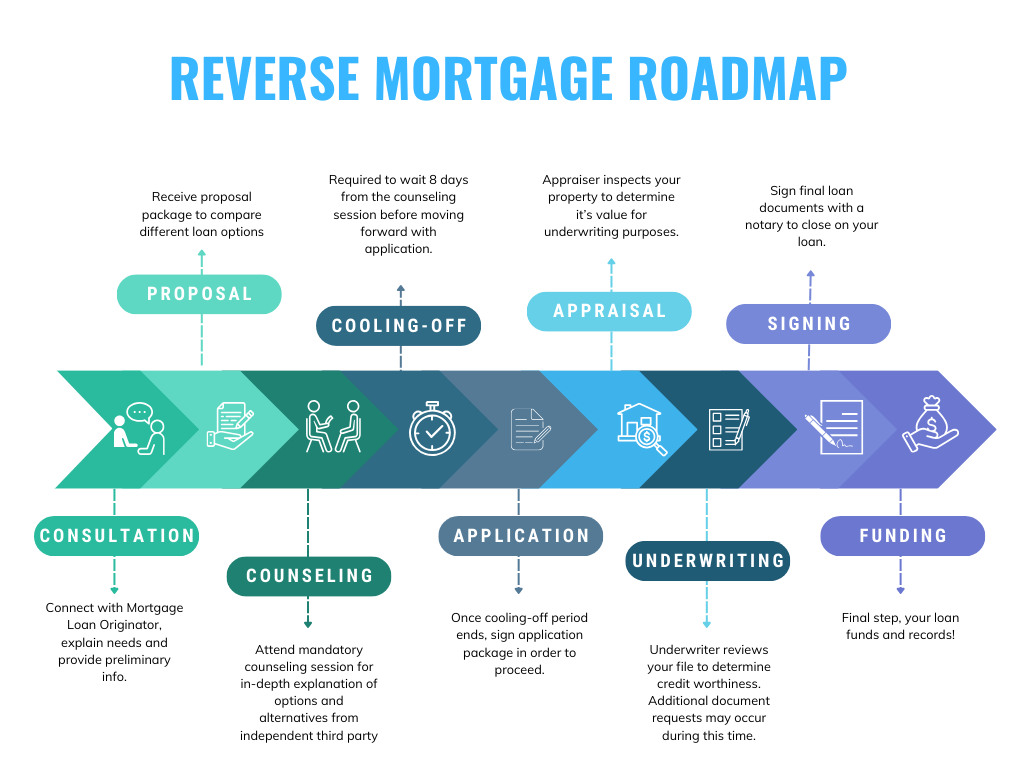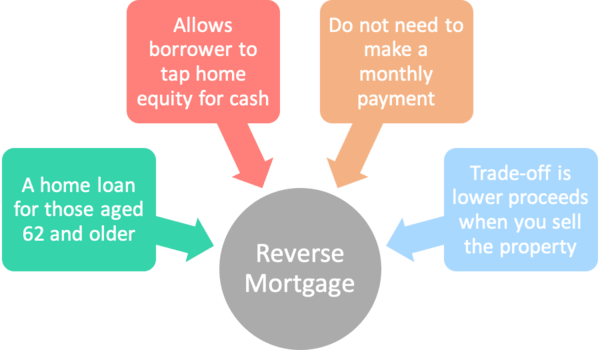Everything You Should Know About How to Purchase Reverse Mortgage
Everything You Should Know About How to Purchase Reverse Mortgage
Blog Article
Empower Your Retired Life: The Smart Means to Acquisition a Reverse Mortgage
As retirement techniques, many people look for effective strategies to improve their economic self-reliance and health. Amongst these approaches, a reverse home loan emerges as a viable alternative for property owners aged 62 and older, enabling them to tap into their home equity without the need of regular monthly payments.
Comprehending Reverse Home Loans
Recognizing reverse home mortgages can be crucial for property owners seeking financial versatility in retirement. A reverse mortgage is a financial item that allows qualified home owners, generally aged 62 and older, to transform a section of their home equity right into money. Unlike typical home loans, where borrowers make regular monthly payments to a loan provider, reverse home loans enable house owners to receive payments or a swelling sum while preserving ownership of their residential property.
The amount offered via a reverse home mortgage depends on numerous factors, including the home owner's age, the home's value, and existing rate of interest prices. Importantly, the loan does not need to be paid back until the property owner markets the home, vacates, or dies.
It is important for prospective customers to recognize the effects of this economic product, including the effect on estate inheritance, tax obligation factors to consider, and ongoing responsibilities associated to property upkeep, taxes, and insurance. Furthermore, counseling sessions with certified specialists are usually required to ensure that consumers totally understand the terms and problems of the loan. Generally, an extensive understanding of reverse home loans can empower property owners to make educated decisions regarding their financial future in retirement.
Advantages of a Reverse Mortgage
A reverse home loan uses numerous compelling benefits for eligible homeowners, especially those in retired life. This financial tool enables seniors to transform a portion of their home equity right into money, supplying important funds without the requirement for regular monthly home mortgage repayments. The cash obtained can be utilized for numerous purposes, such as covering clinical expenditures, making home enhancements, or supplementing retired life income, thus enhancing total financial flexibility.
One substantial benefit of a reverse home loan is that it does not need payment up until the property owner leaves, markets the home, or passes away - purchase reverse mortgage. This attribute makes it possible for retirees to preserve their lifestyle and meet unexpected prices without the worry of month-to-month repayments. Additionally, the funds received are usually tax-free, enabling property owners to use their cash money without fear of tax obligation implications
Additionally, a reverse home loan can provide assurance, recognizing that it can offer as an economic safeguard during difficult times. Home owners likewise retain ownership of their homes, ensuring they can continue residing in an acquainted atmosphere. Ultimately, a reverse home loan can be a calculated economic resource, empowering retirees to handle their financial resources properly while appreciating their golden years.
The Application Refine
Browsing the application procedure for a reverse mortgage is a crucial action for property owners considering this monetary option. The initial stage involves reviewing eligibility, which normally needs the house owner to be a minimum of 62 years old, own the home outright or have a low home loan balance, and inhabit the home as their key home.
Once qualification is validated, house owners have to go through a counseling session with a HUD-approved therapist. This session ensures that they completely comprehend the effects of a reverse home mortgage, consisting of the obligations included. purchase reverse mortgage. top article After finishing counseling, applicants can continue to gather required paperwork, including proof of revenue, possessions, and the home's value
The following step requires sending an application to a loan provider, that will examine the economic and residential or commercial property qualifications. An appraisal of the home will also be performed to identify its market worth. If accepted, the loan provider will certainly present funding terms, which ought to be examined very carefully.
Upon approval, the closing process follows, where last documents are authorized, and funds are disbursed. Comprehending each phase of this application process can substantially enhance the property owner's confidence and decision-making relating to reverse home mortgages.

Trick Factors To Consider Before Acquiring
Getting a reverse home loan is a significant financial decision that requires cautious consideration of several vital variables. Evaluating your economic demands and goals is equally essential; establish whether a reverse home mortgage aligns with your long-term strategies.

Moreover, assess the effect on your existing lifestyle. A reverse home loan can affect your eligibility for sure government advantages, such as Medicaid. Finally, company website look for specialist support. Consulting with a financial advisor or a housing therapist can offer beneficial insights tailored to your individual scenarios. By thoroughly evaluating these considerations, you can make an extra enlightened choice concerning whether a reverse mortgage her explanation is the right financial technique for your retirement.
Taking advantage of Your Funds
Once you have secured a reverse home loan, successfully handling the funds comes to be a top priority. The versatility of a reverse home loan enables house owners to utilize the funds in various methods, yet calculated planning is necessary to optimize their advantages.
One vital strategy is to create a budget plan that outlines your economic goals and regular monthly expenditures. By identifying needed expenses such as medical care, property taxes, and home maintenance, you can allot funds as necessary to guarantee long-term sustainability. Furthermore, take into consideration making use of a portion of the funds for financial investments that can produce income or value in time, such as dividend-paying supplies or mutual funds.
One more essential aspect is to maintain a reserve. Alloting a get from your reverse mortgage can assist cover unforeseen expenses, giving peace of mind and economic security. Furthermore, talk to an economic advisor to discover possible tax obligation implications and how to integrate reverse home mortgage funds right into your general retired life approach.
Inevitably, sensible management of reverse home loan funds can enhance your economic safety and security, permitting you to appreciate your retired life years without the stress and anxiety of monetary unpredictability. Cautious planning and educated decision-making will ensure that your funds function effectively for you.
Verdict
In verdict, a reverse home loan provides a practical economic method for elders looking for to boost their retirement experience. By transforming home equity right into obtainable funds, individuals can deal with vital expenses and secure extra economic resources without sustaining monthly settlements.
Comprehending reverse home loans can be vital for property owners looking for monetary flexibility in retired life. A reverse mortgage is an economic product that allows eligible property owners, typically aged 62 and older, to convert a section of their home equity right into cash money. Unlike standard home mortgages, where consumers make regular monthly repayments to a lender, reverse home loans allow house owners to get payments or a swelling amount while keeping ownership of their residential property.
Generally, a complete understanding of reverse home mortgages can empower property owners to make informed choices regarding their monetary future in retired life.
Consult with a monetary advisor to explore possible tax ramifications and how to incorporate reverse mortgage funds into your general retirement approach.
Report this page